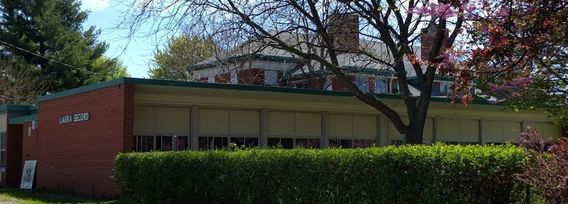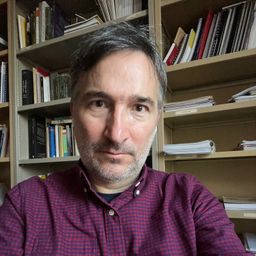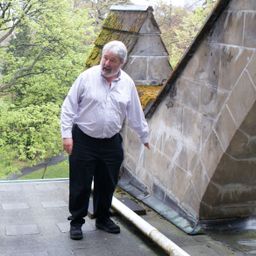
Sessions in which Prof. Marc Grignon participates
Sunday 5 June, 2016
La conservation des quartiers anciens ne se réalise probablement jamais sans être accompagnée de tensions sociales de différentes sortes. Si, dans les années 1960 et 1970, de nombreux projets ont pu être motivés par la résistance citoyenne aux formes les plus néfastes de la rénovation urbaine, aujourd’hui, on a l’impression que la volonté de conserver le patrimoine urbain aboutit presque systématiquement à la «gentrification – un terme qui ne renvoie pas uniquement à l’embourgeoisement d’un...
Friday 26 May, 2017
Thursday 26 May, 2022
Over the past twenty or so years, the architecture of churches in Quebec and across Canada has triggered new and increasingly pressing questions: how should we approach their conservation, use, or meaning in a context where religious practice is in sharp decline, where the economic situation of parishes is prompting hasty decisions, and where radical versions of secularism are being imposed in the public space? These new questions call for different ways of thinking about the historic valu...
Over the past twenty or so years, the architecture of churches in Quebec and across Canada has triggered new and increasingly pressing questions: how should we approach their conservation, use, or meaning in a context where religious practice is in sharp decline, where the economic situation of parishes is prompting hasty decisions, and where radical versions of secularism are being imposed in the public space? These new questions call for different ways of thinking about the historic valu...
Over the past twenty or so years, the architecture of churches in Quebec and across Canada has triggered new and increasingly pressing questions: how should we approach their conservation, use, or meaning in a context where religious practice is in sharp decline, where the economic situation of parishes is prompting hasty decisions, and where radical versions of secularism are being imposed in the public space? These new questions call for different ways of thinking about the historic valu...
Georges-Émile Tanguay (1858-1923) est un architecte de la région de Québec dont l’œuvre semble à cheval sur l’éclectisme stylistique typique de la fin du XIXe siècle et la recherche d’une modernité influencée tant par l’Europe que l’Amérique. Mais au moins en ce qui concerne la conception d’églises, tout se passe comme si la cohérence de son travail apparaissait surtout quand on le considère sous l’angle d’une relecture critique de la ...
Sessions in which Prof. Marc Grignon attends
Friday 3 June, 2016
Welcome addresses and cocktail, followed by the Concordia Signature Event "The Garden of the Grey Nuns". As the opening ceremony and cocktail take place in the former Grey Nuns' Motherhouse, recycled into campus residence and reading rooms by Concordia University, delegates will also have the possibility to discover the video Three Grey Nuns (3 minutes, by Ron Rudin and Phil Lichti. Three Grey Nuns recount their memories of communal life in the Grey Nun’s Motherhouse. Built...
Working with archival documents and the current-day morphology of the Grey Nuns' site, Dr Cynthia Hammond, Dr Shauna Janssen, in collaboration with Dr Jill Didur, will curate a series of installations and performances that speak directly to the rich heritage of a specific urban landscape: the gardens of the Grey Nuns' Motherhouse, now part of the Concordia University downtown campus. Visitors will have the opportunity to explore the lost working gardens of the Grey Nuns. As with other such...
Saturday 4 June, 2016
What if we changed our views on heritage? And if heritage has already changed? While, on the global scene, states maintain their leading role in the mobilization of social and territorial histories, on the local scale, regions, neighbourhoods and parishes have changed. Citizens and communities too: they latch on to heritage to express an unprecedented range of belongings that no law seems to be able to take measures to contain, often to the discontent of...
There is no doubt that the involvement of civil society is a key element in the history of heritage. Working upstream, in line with or against the tide of state recognition, enlightened amateurs or ordinary citizens have invested time and energy in the safeguarding and enhancement of a good, a place or a practice, judged, from their point of view, as irreplaceable or remarkable. It is easy for each country or each region to find an example of a precursor, working alone or in a group, who has ...
This festive event will offer delegates a taste of one of the iconic dishes of Montreal, the smoked meat sandwich, imported by Jewish immigration from Eastern Europe in the early 20th century. In particular, the tasting will allow a discovery of the products of the renowned international institution Schwartz's, the Hebrew Delicatessen for which Montrealers and tourists alike are willing to wait in long line-ups. During the tasting, “Chez Schwartz,” a documentary produced by Garry B...
Most of what we experience as heritage emerges into conscious recognition through a complex mixture of political and ideological filters, including nationalism. In these processes, through a variety of devices (museums, scholarly research, consumer reproduction, etc.), dualistic classifications articulate a powerful hierarchy of value and significance. In particular, the tangible-intangible pair, given legitimacy by such international bodies as UNESCO, reproduces a selective ordering of cul...
Sunday 5 June, 2016
"What does heritage change?" is a multifaceted question to which the answer(s) are in primary respects related to real-life negotiations among different groups of citizens, cultures, races, ethnic groups, sexual identities, and social classes about received, official and/or widely accepted or accomodated intangible attributes, cultural traditions, historic monuments, buildings, and other transmitted or revived historical legacies. Heritage designated by and for whom, for what motivations, an...
Monday 6 June, 2016
Tuesday 7 June, 2016
While historical churches are being abandoned all over the Christian West, more and more places are growing the opposite way: pilgrimage sites are being enlarged and enhanced, whole urban districts are being developed with churches and temples boasting diverse, and often unorthodox, religious practices. Epistemologically linked to heritage, the sacred now seems to follow a path of its own, staging itself in new settings where the “religious heritage” refers mostly to common practices, however...
The closing dinner of the conference, called “Pawâ” according to a French-Canadian tradition borrowed from the Native American lexicon, will be an opportunity to discover, in the heart of the Old Port of Montreal, an original culinary creation by the caterer Agnus Dei, from the renowned Maison Cartier-Besson in Montreal, leader in its field for its boundless creativity and event expertise. The dinner, in the form of stations, will offer delegates an exploration of Quebecois culinary heritage,...
Wednesday 8 June, 2016
More details to come. Bus tour. Tour Guide : Luc Noppen Coût / Fees : 48$ + taxes
Wednesday 24 May, 2017
Thursday 25 May, 2017
As a marker within territory, architecture stakes a claim over that territory on behalf of those who design and build. In Canada, this dynamic inscribed colonial powers onto the land in the wake of Indigenous dispossession, and this architecture is often celebrated as reflective of settler nationhood. Yet other architectures also emerge out of this colonial past: those specifically constructed to further Canada’s attempts to assimilate First Nations, Inuit and Métis communities into the do...
This year, Canada marks the 150th anniversary of Confederation. To celebrate this momentous event, communities and organizations are uniting to examine our past and present, to consider plans for the future, and to try to define Canadian national identity. As a nation, Canada has always been a land of many voices, and thus of many identities; a fact that was formally recognized by parliament as multiculturalism some fifty years ago. Since then, we have become increasingly aware that Canadi...
Recuperation, reuse, recycling, reconversion, requalification: for over half a century, these concepts have been simultaneously associated with the notion of heritage. This period has been, in effect, marked by the transition from a “heritage of contemplation” to a “heritage of use,” to borrow Jean-Claude Marsan’s expression. In fact, buildings and sites are no longer just safeguarded for historic or aesthetic considerations, but for a new usage that is supposed to give them contemporary r...
This lecture examines some of the many fine historical churches in the Niagara region from the 1830s to the early 20th century. We commence with St Andrew's Presbyterian Church, Niagara-on-the-Lake (1831) and explain Scottish, English and American associations for the 'temple-form' design. After brief consideration of St Vincent-de-Paul Roman Catholic Church, Niagara-on-the-Lake, attention is turned to the Methodist Church at Beaverdams and the reconstruction of its original 1830s design a...
Friday 26 May, 2017
Although the study of architecture in Canada is a relatively young field, it is no exaggeration to say that more attention has been given to religious architecture than any other form of building in the country. That is because as long as people have inhabited the land that is now known as Canada, there have been buildings devoted to their religious beliefs and practices. Churches, synagogues, mosques, and temples can be found in communities across the country in every style, from vernacul...
The banquet includes a welcome drink, three-course dinner with three wine pairings, explained by a winemaker, as well as transportation to and from Ravine Estate Winery. Le banquet inclut un cocktail, un repas trois services avec trois mets-vins, expliqués par un vinificateur, ainsi qu'une navette aller-retour à Ravine Estate Winery. Cocktail : 18:20 Banquet : 19:00
Saturday 27 May, 2017
In light of the temporal emphasis of the conference as a whole, this session will investigate the idea of Canadian built environment in the context of “alternative modernities,” a term that defines Modernism not as a monolithic discourse, but as multiple aesthetic, cultural, and political ways of engaging with/or countering mainstream Western modernist narratives. In other words, how do constructed spaces/buildings in Canada run parallel to, or otherwise disrupt or complicate, dominant not...
Architectural walking tour of Niagara-on-the-Lake with the Niagara Historical Society and Museum. Visite à pied de l'architecture de Niagara-on-the-Lake avec le Niagara Historical Society and Museum. Meeting Point | Point de Rencontre : Niagara Historical Soceity and Museum, 43 Castlereagh Street, Niagara-on-the-Lake. (Approx. 8 minutes walking from downtown | 8 minutes à pied du centre-ville) Guide : Glenn Smith Description :
Wednesday 25 May, 2022
We propose a rich and colorful inaugural evening, in a mythical place: Dawson Hall, behind St James United Church (1887-1889, Alexander Francis Dunlop, arch.), known as the "Montreal Methodist Cathedral" - with 2000 seats, it was the largest Methodist church in Canada when it was built. Designated a National Historic Site of Canada in 1996, it escaped demolition in 1980 when it was classified as a historic monument, and then escaped extinction thanks to an ambitious restoration project, in...
Thursday 26 May, 2022
Roger D'Astous is one of the most important Canadian architects of the 20th century. A student of Frank Lloyd Wright, he worked all his life to establish a northern architecture. This rebellious and flamboyant artist was a superstar of the sixties, then fell into disgrace before being reborn in the twilight of the century. Author of two Montreal icons, the Château Champlain Hotel and the Olympic Village for the 1976 Games, his residences are sensual works of art and his churches are strang...
Friday 27 May, 2022
Walking tour of the working-class housing and churches of Saint-Pierre-Apôtre and Sainte-Brigide-de-Kildare (now the Sainte-Brigide Cultural and Community Centre) in the south-central district of Montreal.The tour will be guided by Luc Noppen.A departure (by foot) will be organized from the conference site; the tour itself will begin at 5:00 pm at the Beaudry metro station (a metro station of Berri-UQAM, site of the conference).
Saturday 28 May, 2022
Bus tour of the Soulanges Canal and its facilities (1899-1959), currently undergoing a major enhancement project. The first stop will be at the west entrance of the canal, the Coteau-Landing (Les Coteaux) entrance lock; from there, we will go to lock no. 4 and to the old Cedars hydroelectric power station (called "Petit Pouvoir"), classified as a historic monument since 1984 by the Quebec government, then to Pointe-des-Cascades where the spectacular locks no. 1, 2 and 3 are located. The vi...
We offer a unique experience for the closing dinner of this conference in Montreal, in the former U.S. pavilion of Expo'67 - the most popular of the exhibition, with 5.3 million visitors: the "geodesic dome" designed by architect Buckminster Fuller (1895-1983) with the collaboration of Shoji Sadao. The self-supporting steel honeycomb structure, covered with a polymer skin, was burned down in 1976 and redeveloped in the 1990s, according to the plans of architect Éric Gauthier, into an envir...

























